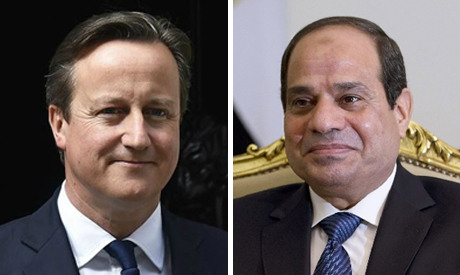 The British government has this year increased its arms deals with Egypt, after a reduction in arms exports following the 2013 ouster of president Mohamed Morsi, the website Newsweek reported on Friday.
The British government has this year increased its arms deals with Egypt, after a reduction in arms exports following the 2013 ouster of president Mohamed Morsi, the website Newsweek reported on Friday.
The American website said that the official records released by the British government and reported by the Campaign Against the Arms Trade (CAAT) showed that London in the first three months of 2015 approved military licences to Egypt for "components of military combat vehicles" worth £48.8 million ($76.3 million).
These figures represent a 3,000 percent increase year-on-year in the value of military deals between the two countries. According to Newsweek, in the first quarter of 2014 military deals between both countries were worth £1.6 million ($2.4 million). A number of arms export licences were suspended by the UK in 2013 after the ouster of Morsi.
Newsweek reported that the British government's Department for Business, Innovation and Skills, the entity authorised to sanction and suspend military licenses, declined to reveal more details about the items being exported under the terms of the deal.
In June President Abdel-Fattah El-Sisi received an invitation from British Prime Minister David Cameron to visit London.
Some British human rights groups have condemned the increase in military cooperation with Egypt, citing human rights concerns.
"The UK should be condemning the appalling human rights abuses that are taking place in Egypt, "Andrew Smith, a researcher at CAAT, told Newsweek.
"However, these increasing arms sales, and the forthcoming visit, suggest that the government wants to strengthen its ties," he added.
A spokesperson for the Department for Business, Innovation and Skills told Newsweek that the British government continues to "monitor the situation in Egypt, particularly in relation to crowd control operations, and keep in close contact with EU partners on the application of export licensing policy."
"The UK Government continues to have concerns about human rights in Egypt, which is why we apply rigorous standards in assessing export license applications," he added.



